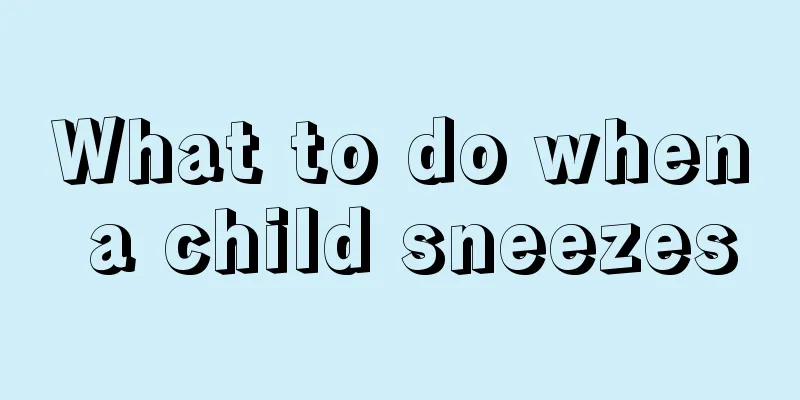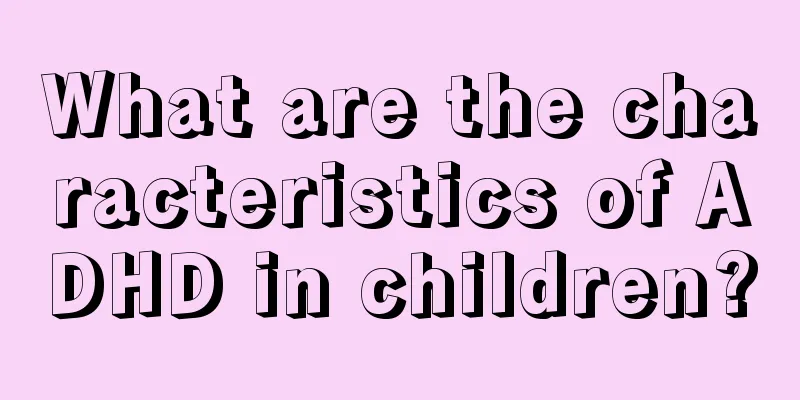Is it normal for babies to sweat while feeding?

|
When we eat, we sweat because the food is too hot. The same principle applies to breastfed babies. Because breast milk is hotter, the baby is in a hurry and will sweat. In this case, the sweating is just a little hot, and the baby's body will feel sticky when touched. If you sweat a lot, it is not normal. The following article analyzes the reasons why babies sweat while feeding. Let’s take a look. Why does my baby sweat while eating and sleeping? Thermic effect of food. Babies sweat more than usual when they are breastfeeding, which is mainly due to the thermal effect of food. The human body will naturally generate a certain amount of heat after eating, and it is normal to dissipate heat through sweating. Even adults like us will sweat during or after meals! Therefore, it is normal for babies to sweat more when feeding or eating. Parents can help babies put on light clothes before eating to reduce the amount of sweating. Hot. There is a kind of cold called grandparents thinking you are cold! They often think that babies are too fragile and are afraid of catching a cold if they don’t wear enough clothes, so they unconsciously dress the babies in a lot of clothes. But in fact, babies’ metabolism is faster than adults, and they feel hot more easily than adults. Therefore, when taking care of the baby, family members must not judge the baby's feelings based on their own cold or hot feelings, and add or remove clothes at will. What are the reasons why babies sweat? 1. Physiological sweating. Physiological sweating refers to the baby sweating because the sweat glands are not yet mature. Most babies sweat while feeding, which is most likely physiological sweating. This is mainly because children's sweat glands and sympathetic nervous systems are not fully developed, their metabolism is active, their skin has many blood vessels, and their body water content is high. In addition, they are active and sweat more than adults, so sweating easily is a normal physiological phenomenon. In addition, wearing too many clothes, covering with too thick a blanket, and too high a room temperature can all cause children to sweat excessively. Giving children overheated milk or other food can also cause sweating. 2. Pathological hyperhidrosis. Pathological sweating may be caused by the baby's lack of vitamin D or other trace elements. This type of sweating mostly occurs in the first half of the night, and may be accompanied by symptoms such as baldness on the pillow, irritability, disturbed sleep, etc., and may also result in recurrent respiratory tract infections. In addition, babies who are zinc deficient are prone to sweating when breastfeeding, and will have symptoms such as being shorter, lighter, having anorexia, and being irritable. In addition, if the baby suffers from diseases such as diabetes, hyperthyroidism, active tuberculosis, collapse caused by hypoglycemia, etc., it is also easy to cause sweating while feeding. It is not uncommon for a baby to just sweat a lot, but it is more puzzling if he always sweats while feeding or sleeping. So mothers should pay attention to this and find out what causes this. And find out whether it is good or bad for your baby to sweat a lot, and whether there will be any bad consequences. |
<<: What should babies eat if they sweat a lot?
>>: Can newborns drink honeysuckle? Can babies drink honeysuckle water?
Recommend
What causes babies to spit up? Beware of three major factors!
There are many reasons why babies spit up. Someti...
What disease causes the baby to vomit after eating?
The phenomenon of babies vomiting after eating ma...
What to do with myopia in primary school students
In the early years, there were not many people wi...
Massage methods for children to enhance their immunity
Children's resistance is relatively poor, esp...
Is it harmful to take X-rays on children?
Everyone knows that when there is an abnormal con...
What is the reason for newborns to have fat particles?
Fat particles are a very common phenomenon in nor...
Can children sleep on a cool mat?
Children's metabolism is relatively fast and ...
Is foot bath suitable for children?
As people’s work pressure increases in modern soc...
What medicine is effective for neonatal jaundice
Jaundice is a hepatobiliary and pancreatic diseas...
Sequelae of febrile seizures in children
It is very common for children to have high fever...
How to solve the problem of children’s eyes being stuck with eye mucus due to inflammation?
Children often encounter some factors that affect...
Baby has small pimples on face
Everyone should know that a baby's skin is ve...
Can children have their teeth filled?
Children are most unable to control their craving...
The child is hot and has cold hands and feet
If a child becomes hot but has cold hands and fee...
How to improve children's vision
Children need to protect their eyes well when the...









